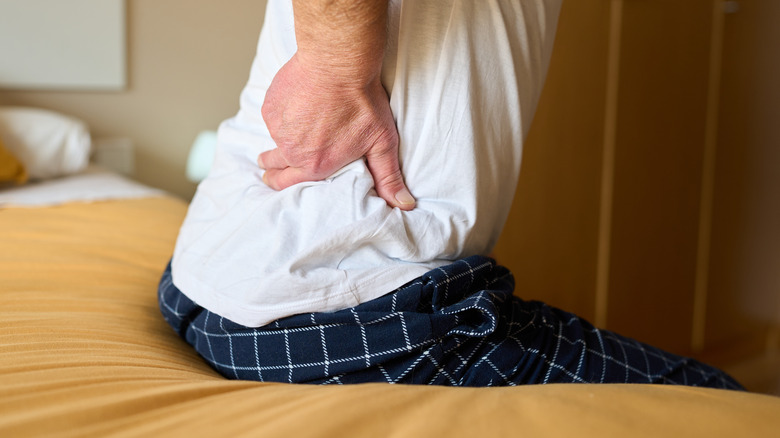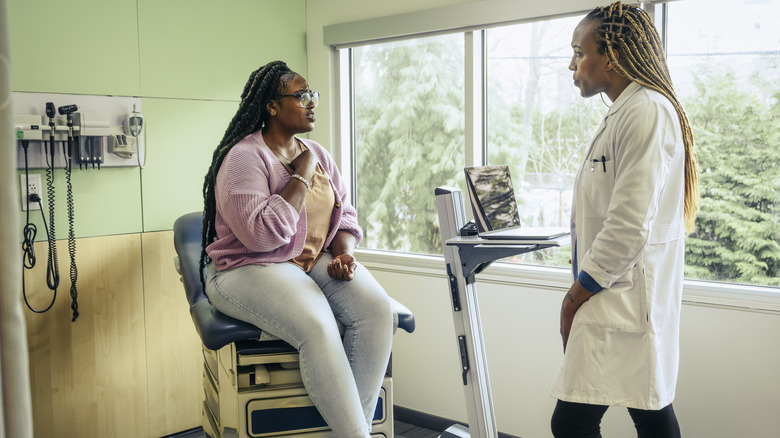The Unfortunate Connection Between Heartburn And Back Pain
Have you been experiencing back pain when you get heartburn? Though the conditions might seem unrelated, they could be connected. Heartburn, also known as acid reflux, happens when the lower esophageal sphincter (LES) allows acid from the stomach to travel back into the esophagus. (It's what you might refer to as acid "backwash" because the acid is moving in the wrong direction.)
Though your stomach is equipped to handle those acids, your esophagus isn't. Consequently, the sensitive tissues in the esophagus become irritated, leading you to feel a burning or stinging sensation in your throat and, sometimes, in your upper chest. Those common hallmarks of heartburn are bad enough. But others can show up as well. And as SNL's Kenan Thompson mentioned when he opened up about his heartburn-associated medical diagnosis, the combined symptoms of heartburn can affect your quality of life.
For instance, you might start to feel nauseated (maybe to the point that you gag or vomit.) Or, you might start to feel twinges of pain in your back because the nerves in your esophagus that are affected by stomach acid can trigger nerves in your back. As a result, your back may begin to ache every time you have heartburn.
Stress, back pain, and acid reflux
Radiating nerve responses aren't the only possible reasons for your heartburn-related back pain, though. Another could be that your back pain is a physical reaction to stress, rather than a direct reflection of heartburn.
In a 2012 study in Digestive Diseases and Sciences involving over 6,800 participants, high stress was observed to have a significant association with heartburn. This could mean that your heartburn is caused by your stress. Stress and anxiety can have effects on your body; one example is that your back might feel painful because you're anxious and not because of the heartburn itself.
To ease both your heartburn and back pain, you may want to talk with your medical provider about treatment options. For example, if you only have heartburn occasionally, pharmacy manager Tara O'Brien suggests trying an over-the-counter chewable or liquid antacid product featuring calcium carbonate to provide relief (via WebMD). "If heartburn is only intermittent, that's usually the first option," she noted.
Lasting relief from chronic heartburn
On the other hand, if your heartburn comes regularly, you may be tested and treated (if necessary) for gastroesophageal reflux disease (GERD), the condition that Kenan Thompson has. People with GERD experience frequent heartburn because their LES consistently relaxes and allows stomach acid to escape toward the mouth.
GERD can be addressed in several ways. The least invasive ways would be taking stomach-acid-reducing medications before eating (usually histamine 2 blockers or proton pump inhibitors, although the latter may be a medication that can increase your risk of dementia), avoiding lying down for a few hours after eating, eliminating foods and beverages that trigger GERD, and making lifestyle changes like losing weight.
People with GERD who don't respond well to medications and other at-home remedies may be candidates for surgical procedures designed to fix any flaws in the LES function and curb stomach acid reflux. Ultimately, solving your GERD should solve your back pain if the two conditions are connected.


